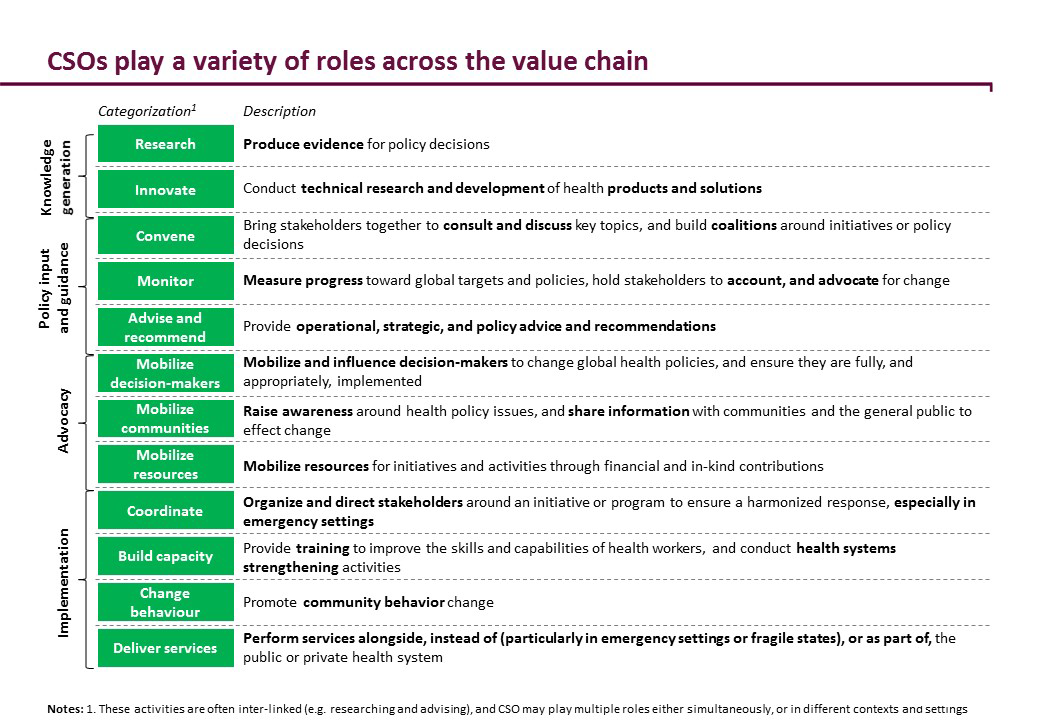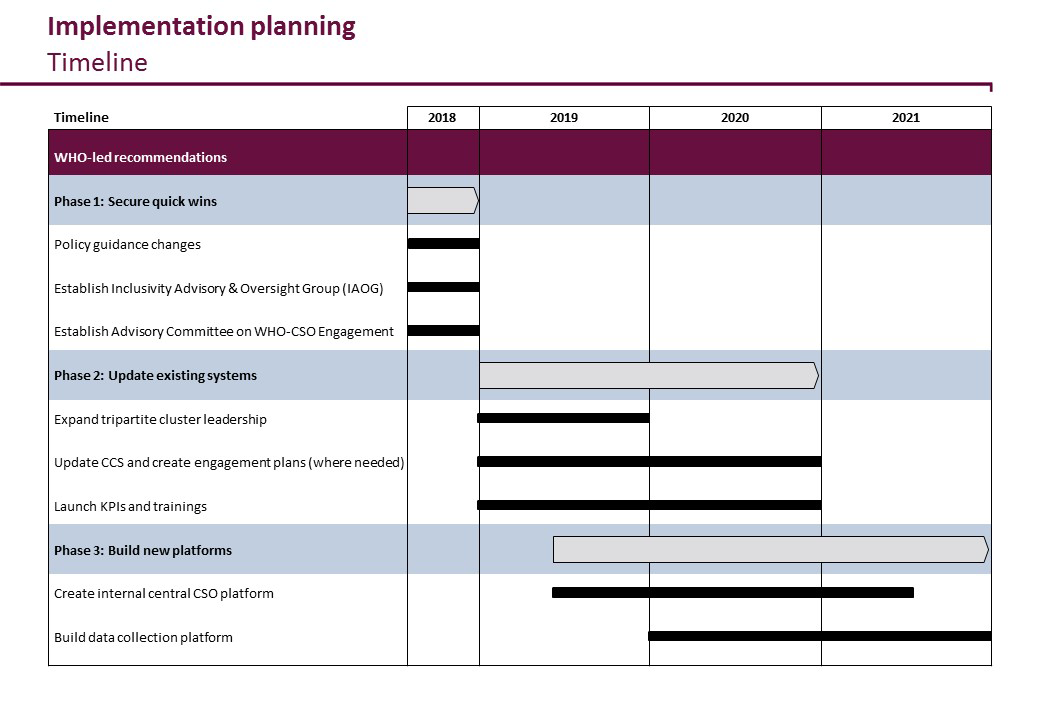Background
In September 2017, WHO Director-General Dr. Tedros Adhanom Ghebreyesus requested that the United Nations Foundation and RESULTS create a working group to explore strategies for improving engagement between WHO and civil society organizations (CSOs). The WHO-CSO Task Team has 21 members from 17 countries, representing a range of sectors, geographic regions, functions, and levels of engagement with WHO. It was established in January 2018 and has been co-facilitated by the UN Foundation and RESULTS.
The 13th General Programme of Work (GPW) is WHO’s five-year vision to promote health, keep the world safe, and serve the vulnerable. It was approved by member states at the 71st World Health Assembly in May 2018. The GPW lays out bold commitments to ensure that, by 2023, one billion more people benefit from universal health coverage, one billion more people are protected from health emergencies, and one billion more people are able to enjoy better health and well-being. As the GPW well articulates, WHO must strengthen its collaboration with partners from all parts of the world to harness collective efforts for good and to achieve these ambitious “triple billion” targets.
Civil society is uniquely positioned to represent and reach target populations and help advance universal health coverage, protect the vulnerable, and promote good health and well-being. Ranging from community-based organizations to non-profits and research institutions, CSOs play a variety of roles, such as knowledge generation, policy input and guidance, advocacy, and implementation support, and actively support vulnerable and hard-to-reach populations.

WHO’s recently adopted Framework of Engagement with Non-State Actors (FENSA) outlines the principles through which WHO collaborates with CSOs and serves as a basis for enhancing WHO-CSO engagement. It was approved by member states at the 69th World Health Assembly in May 2016. FENSA defines five types of engagement: participation, resources, evidence, advocacy, and technical collaboration. The Task Team agreed that within these principles, there is an opportunity to further define and enhance how WHO and CSOs engage in a way that captures the full diversity of the civil society landscape and defines a strategic approach to collaboration in pursuit of shared goals.
Over the course of six months, the recommendations were developed through five key activities:
- CSO survey: A short survey on WHO-CSO collaboration was circulated to a globally diverse sample of over 400 CSOs and made available in English, French, and Spanish. 153 CSOs across WHO regions and levels (global, regional, country) completed the survey.
- WHO consultations: The Project Team held discussions with WHO Headquarters staff, as well as current and former WHO Representatives in several countries. The emerging recommendations were shared with a wider set of WHO staff for review and feedback.
- CSO consultations: The Project Team conducted in-depth, individual interviews with each Task Team member, and gathered input from additional CSO representatives where recommended. CSOs were also invited to review and provide feedback on the emerging recommendations over a three-week period, and more than 40 stakeholders responded to an online consultation.
- WHO-CSO events: The Task Team met for two in-person workshops, the first in February 2018 in Geneva and the second in April 2018 in Washington, DC. Several Task Team members in official relations with WHO hosted an official World Health Assembly side event in May 2018 focused on civil society engagement to achieve the GPW, where the Task Team’s preliminary findings were presented.
- Review of exemplary mechanisms: The Project Team reviewed existing CSO engagement mechanisms at WHO and other institutions and held additional consultations to inform and guide the recommendations.
The Task Team will share these recommendations with key constituencies, including WHO staff, Member States, and a range of CSOs through presentations at WHO Headquarters, and other international conferences in 2019.
Over the coming months, members of the Task Team will continue to work on an informal basis to support WHO in the implementation of these recommendations, aligned with the proposed timeline below.
To provide remarks, or learn more about how you or your organization can get involved, please leave your information in the comments box below.
Please follow along and join the conversation on social media using #CivilSociety4Health.
